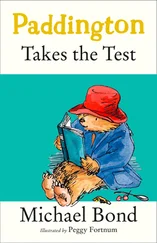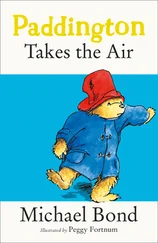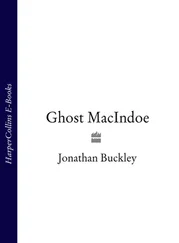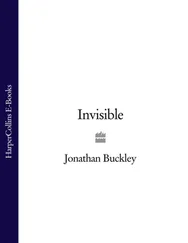‘So if you said to him, “Henry, where were you yesterday?” he’d say, “I haven’t a clue?” Is that right?’
‘He’d remember stuff. Things he’d seen.’
‘In that case he wasn’t blank, was he?’
‘Not entirely, no. He’d remember bits and pieces, but they wouldn’t join up. Things would be vague. Like remembering a dream.’
‘Sounds to me like he needed medical attention.’
‘That’s not the sort of help he needed.’
‘What sort did he need?’
‘Some money wouldn’t have gone amiss,’ Hannah replies. Asked whether Henry was as vague about the more distant past as he was about the weeks just gone, she confirms that he was and smiles faintly to herself as she says it, as if Henry had cleverly anticipated the problems his vagueness would cause after he’d gone. He once lived in London, many years ago. Sometimes he talked about buildings or places in the city and he’d struggle to see them clearly, because it was so long since he’d been there. He said that explicitly. Did Henry ever name any friends or acquaintances he might once have had? No, there were no names, none that she could recall at the moment. How did Henry come to be homeless, did she know that? She knew that he’d lost his job and that he lost his home as a consequence. What was the job? Henry didn’t say. Where was it? Henry didn’t say. How long ago? Henry didn’t say.
‘You didn’t ask him?’ Ian intervenes.
‘If he wanted to tell me more, he’d have told me more,’ Hannah firmly replies, as if repeating a rule that Ian had forgotten. ‘If he didn’t, he’d change the subject. He’d shrug and go quiet, and that would be the end of it.’ Again she consults the sky, which seems to bring the recollection of a particular episode with Henry. She is about to speak, then halts herself, narrowing her eyes, putting her thoughts in order. ‘With Henry the past was dead,’ she says, and grimaces at herself, because that’s not quite right. ‘It was irrelevant to him. He was lonely and bored a lot of the time, but he never gave the impression of being nostalgic for the life he’d lost. Or hardly ever. There was no bitterness in him. What was gone was gone. He was where he was, and he was making the best of it. But occasionally he’d remember something,’ Hannah goes on, offering a rueful smile. She inspects a finger, attending to a speck of dirt caught under a nail before continuing. ‘He’d be struck by a memory. It would just seem to hit him, out of nowhere. Little things: what something looked like. A street, a market, a face. He’d be really jolted by it, and delighted, for a while, then he’d begin to get sad and he’d do this,’ she says, with a swat of the hand. ‘Move on. No dwelling on the past.’
Stifling a yawn that appears rhetorical, Ian closes his notebook. ‘Cuts down the topics for conversation, doesn’t it? If your past is off the menu,’ he observes. ‘You say you liked talking to him. What was there to talk about? I mean, it’s not as if he’d had an action-packed day at the office.’
The crudity of the question makes Hannah sigh. They talked about the things they could see, she explains. They talked about what she’d been doing since the last time he saw her, about things that had happened in the town, about the weather, the news, the things people talk about.
Ian’s notebook goes into a pocket; it’s time to wind up. ‘But he never named anyone he knew? He saw faces but they had no names?’ he asks in conclusion.
‘No.’
‘Remarkable.’
‘That’s the way it was,’ says Hannah, again not to Ian. She’s staring at the photographs of the field with the drystone wall, remembering something about Henry, it appears.
‘Well, if you think of anything else, call us on this number,’ Ian finishes, depositing a card on the floor beside her knee.
She gives the card a second of her attention. Henry could tell when it was going to rain, she adds. His fingers would swell up and shrink with the changing air pressure. The pulse in his wrists would become so prominent, it was like looking at the flank of a frog as it breathed. He was like a human barometer, never wrong, she says.
The next day new flyers were issued, using Hannah’s photograph instead of the fuzzy beach snap, and stations in London were given the new improved mugshot. The response was silence. It felt as if we were lobbing marbles into a bog.
One Monday lunchtime we take a message from Tom Gaskin, saying he has some information that might be useful and asking us to drop by his house, whenever was convenient, so as soon as the paperwork is out of the way, around five, we drive over there. As when we’d left him all those days ago, he’s sitting at the table in the window, wearing a crisp white shirt, though on this occasion the tie is a stripy blue-and-yellow cricket-club number. When he sees us arrive he gives us a stiff slow wave of the forearm, a tired and polite little gesture, like the wave of a man at a car park barrier greeting the five hundredth driver of the day. You get the impression he’s been sitting there for hours, staring out at the sea and the hills.
He seats us around the table, asks if either of us would like tea or coffee, glances at the view from his window, passes comment on the weather. He asks us how the investigation is proceeding and immediately revokes the question, apologising for its impertinence. Then there is no longer any way of delaying. Stroking the backs of his hands, as if trying to rub the creases out of his skin, he begins. ‘This may not be of any consequence,’ he says, and gives the scratches in the table top a quizzical look, as if distracted for a moment by the problem of how the table came to be scratched. ‘Well, you can tell me if it’s of any consequence, can’t you?’ he continues. ‘I was sitting here, last Sunday, in this very seat, last Sunday lunchtime. It was shortly after one o’clock. I know that, because the news had just started. On the radio. I was sitting here and I looked over that way, towards where that boat is.’ He points steadily towards the horizon, leaving his finger in mid air until we have both looked in the indicated direction. What had caught his attention was a kite, a bright-pink kite, that had come loose and was flying across the beach. Then he saw this young man, a rather unkempt character, walking very slowly, round and round the same spot, close to the sea wall, where Henry sometimes used to bed down for the night. Round and round he went, examining the ground, as though he’d dropped something, then he sat down on the parapet and stayed there for quite a time, looking out at the sea, which was also a bit peculiar, Tom thought, because it wasn’t a nice day. Lightly raining, in fact. After that he walked off, around the headland. An hour later he came back and resumed his search of the sand. This went on for another ten minutes or so. Quite odd behaviour, Tom thought, but in itself perhaps not worth remarking on. ‘Some folk like the rain, don’t they?’ he adds. ‘I quite like it myself.’
It would be difficult to be more long-winded than Tom Gaskin, and we know that this conversation is going to yield nothing that could not have been relayed to us over the phone. And that’s the reason for all the words, to disguise the fact that our presence isn’t strictly necessary, not for us, anyway. Tom Gaskin is the loneliest man in town.
‘Unkempt?’ asks Ian, applying a full stop with an audible tap that he hopes will convey a need for greater momentum.
‘That’s right. But the thing is,’ Tom resumes, dragging his chair closer to the table, ‘on Tuesday, after lunchtime, soon after 1.30, I saw the same young man, on a bicycle this time, one of those mountain bikes. He was riding on the sand, and he stopped in the same place and stayed there for a quarter of an hour I’d say, looking around, before he went off towards Straight Point. And again he was gone for an hour or so.’
Читать дальше












